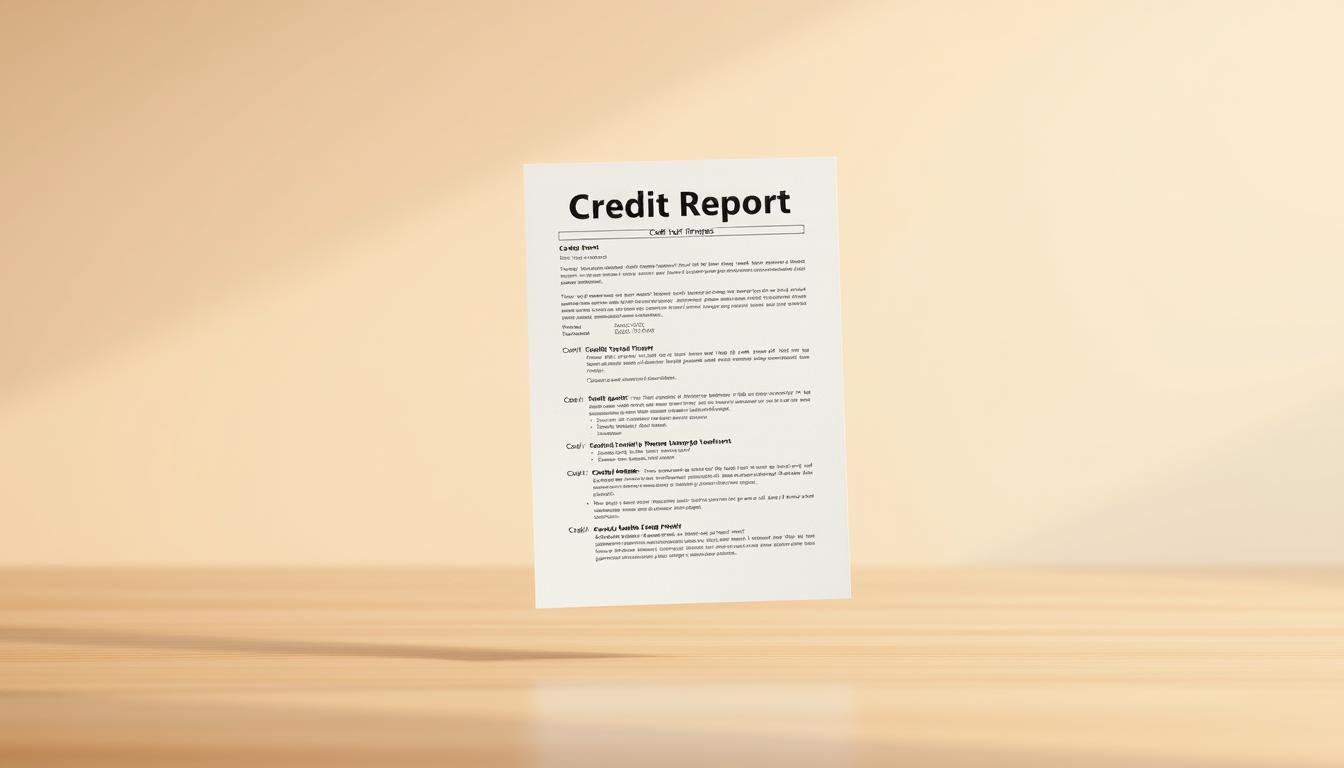Managing your financial history is crucial for achieving long-term stability and success. Link free credit reports are essential tools in this process, providing a comprehensive overview of your credit status. By utilizing these reports, you can simplify finances, make informed decisions, and enhance your financial awareness. Understanding how to access and use these crucial documents can empower you to improve your credit health and secure better opportunities in the future.
Understanding Credit Reports
A credit report serves as an essential tool for individuals wishing to understand their financial status. It provides a comprehensive summary of a person’s credit history, which includes personal identifying information, credit accounts, payment history, and any bankruptcies. The credit report definition highlights that these details are compiled by three major credit bureaus: Equifax, Experian, and TransUnion.
What is a credit report?
This document reflects an individual’s personal credit history, showcasing how they have managed their credit over time. Potential lenders, landlords, and employers often review this report to gauge the reliability and creditworthiness of an individual. By keeping track of one’s credit report, individuals can uncover important insights into their financial behaviors.
Why are credit reports important?
The importance of credit reports cannot be overstated. They play a pivotal role in determining a person’s creditworthiness, impacting not only loan approvals and interest rates but also potential employment opportunities and insurance options. A clear, accurate, and well-maintained credit report allows individuals to secure better financial terms. Active monitoring of this report can help prevent financial pitfalls and enhance overall financial health.

How Credit Reports Affect Your Finances
The financial impact of credit reports extends into various aspects of daily life, influencing significant decisions regarding loan approvals, rental agreements, and employment decisions. Understanding this impact can empower individuals to manage their credit profiles effectively.
Impact on loan approvals and interest rates
A positive credit report plays a crucial role in securing favorable loan approvals. Lenders assess the associated risks through credit history, determining interest rates and loan terms accordingly. Borrowers with excellent credit scores often enjoy lower interest rates, making loans more affordable. Conversely, a poor credit history can lead to higher rates or even denial of applications, showcasing the substantial financial impact of credit reports.
The role in renting and employment
Credit reports significantly affect rental agreements and employment decisions as landlords and employers frequently evaluate them. A solid credit history can enhance the likelihood of securing rental housing or gaining employment, reflecting a responsible financial behavior. Negative entries, however, can limit opportunities, illustrating how credit reports serve as a tool for assessing reliability and trustworthiness in various spheres of life.
Link-Free Credit Report Access
Accessing your credit report is essential for maintaining financial health. Consumers can obtain their reports without navigating through complex links, which offers a straightforward and secure method. The Federal Trade Commission recommends using verified sites such as AnnualCreditReport.com for link-free access to ensure you interact with trustworthy services. Additionally, requesting your reports by phone or mail provides alternative ways to access credit reports without the risk of falling victim to phishing scams.
How to obtain your credit report without links
To access your credit report, start by visiting authorized services that guarantee security and integrity. Each year, consumers are entitled to a free credit report from the three major credit bureaus: Equifax, Experian, and TransUnion. Utilizing AnnualCreditReport.com or calling directly can help streamline this process while prioritizing personal information security. Always rely on official methods to minimize the chances of encountering fraudulent websites.
Best practices for safeguarding your personal information
Protecting your personal information is vital when accessing credit reports. Before submitting any data, confirm the legitimacy of the website or service. Avoid sharing sensitive information via email or unsecured platforms, as this makes your identity vulnerable to theft. Practicing caution ensures that your efforts to access credit reports add to your financial security instead of compromising it.
How To Get Your Free Annual Credit Reports
Accessing your free annual credit reports is an essential step toward managing your financial health. Consumers in the United States can utilize authorized methods to obtain these reports, ensuring they stay informed about their credit status and any potential errors. Understanding the frequency of access allowed by federal law provides further clarity on how often you can check your reports.
Authorized methods for obtaining reports
Individuals can easily get free annual credit reports from the three major credit bureaus: Equifax, Experian, and TransUnion. The simplest way to access your reports is through AnnualCreditReport.com. Another option is to call 1-877-322-8228, where you can request your reports over the phone. Additionally, consumers can obtain their reports by mailing the Annual Credit Report Request Form. These authorized methods ensure that you receive your credit information securely and efficiently.
Frequency of accessing your credit reports
Under federal law, consumers are entitled to one free credit report from each bureau every 12 months. To adapt to ongoing concerns about identity theft and credit monitoring, regulations allow individuals to access their reports weekly until December 2026. This increased frequency of access provides valuable opportunities to stay updated on your credit status and to spot any discrepancies early.
What To Expect When Ordering Your Credit Reports
Ordering credit reports can feel daunting, but understanding the process can ease your concerns. To begin, you must provide specific information for identity verification to ensure your report remains secure. Gathering the necessary details ahead of time can make the experience smoother.
Information required for identity verification
When ordering credit reports, be prepared to supply your name, Social Security number, date of birth, and address. These details help credit bureaus confirm your identity and provide accurate information. Ensuring this information is up-to-date will simplify the identity verification process and help avoid any delays.
How long does it take to receive your report?
The report delivery time varies depending on your method for ordering reports. If you choose to order online, you may receive your report immediately. For requests made via phone or mail, expect to wait up to 15 days. Be mindful that additional verification may lengthen this timeframe.
Monitoring Your Credit Reports Effectively
Keeping a close eye on your credit reports is essential for maintaining financial health. Regular monitoring credit reports helps you identify inaccuracies or potential fraud before they escalate. A strategic approach involves understanding when to order reports and how to schedule these requests throughout the year.
When to order reports from all three bureaus
Requesting reports from Experian, TransUnion, and Equifax at least once a year allows for comprehensive monitoring of credit accuracy. By checking reports from all three bureaus, you can ensure that your credit history is reported consistently across platforms. This practice contributes to a better understanding of your overall credit score and any discrepancies that may exist.
Staggering report requests throughout the year
Financial experts often recommend staggered requests throughout the year to optimize credit report frequency. By doing so, you can regularly monitor your credit status, allowing for quicker detection of any issues. For instance, consider spacing your requests every four months. This method not only aids in consistent observation but also empowers you to take corrective action as needed.
Who Can Access Your Credit Reports?
Understanding who can access your credit reports plays a vital role in managing your financial health. Several individuals and businesses have the authority to access these reports based on permissible purposes outlined by law. Knowing who checks credit provides clarity on how your information may be evaluated and used.
Permissible purposes for credit report access
Lenders often access credit reports when assessing an individual’s application for loans and credit cards. Insurance companies may check credit to determine premiums for policies, as a person’s credit score can be a factor in their risk assessment. Employers, with the applicant’s consent, can review credit reports as part of their hiring process to gauge an applicant’s financial responsibility.
Being aware of these permissible purposes encourages consumers to take charge of their credit profiles, ensuring they maintain an accurate and positive report. This knowledge builds confidence and allows individuals to stay proactive about their financial future.
Avoiding Scams and Fraudulent Websites
In the pursuit of accessing your credit report, it’s crucial to focus on avoiding scams that prey on unsuspecting individuals. Many consumers struggle to determine which platforms are legitimate sources for obtaining their credit reports. The authorized site for free annual credit reports is AnnualCreditReport.com. This site provides a straightforward, secure method for obtaining your report without falling victim to fraudulent credit report websites.
Furthermore, numerous online platforms make enticing offers claiming to provide free credit reports. These fraudulent sites may aim to collect personal information or impose hidden fees. Vigilance is essential when sharing your details online. Always verify the credibility of any source before proceeding and look for clear indications of authentication. Being proactive about understanding these common scams will help safeguard your financial information.
Conclusion
Understanding the summary of credit reports is vital for anyone aiming to maintain their financial health. These reports serve as a reflection of your credit history, affecting everything from loan approvals to interest rates. By familiarizing yourself with how to access and interpret these documents, you can make informed decisions about your finances.
Monitoring your credit reports is crucial for spotting errors or fraudulent activities that could impact your financial well-being. The importance of monitoring cannot be overstated, as it empowers you to take proactive steps in safeguarding your financial future. With link-free credit report access, navigating this process is more straightforward than ever, ensuring that consumers have the necessary tools for effective financial management.
In summary, staying aware of your credit standing is a key component of achieving long-term financial health. By understanding your credit reports and implementing consistent monitoring, you can not only protect yourself from potential risks but also make empowered choices that positively impact your financial journey.

